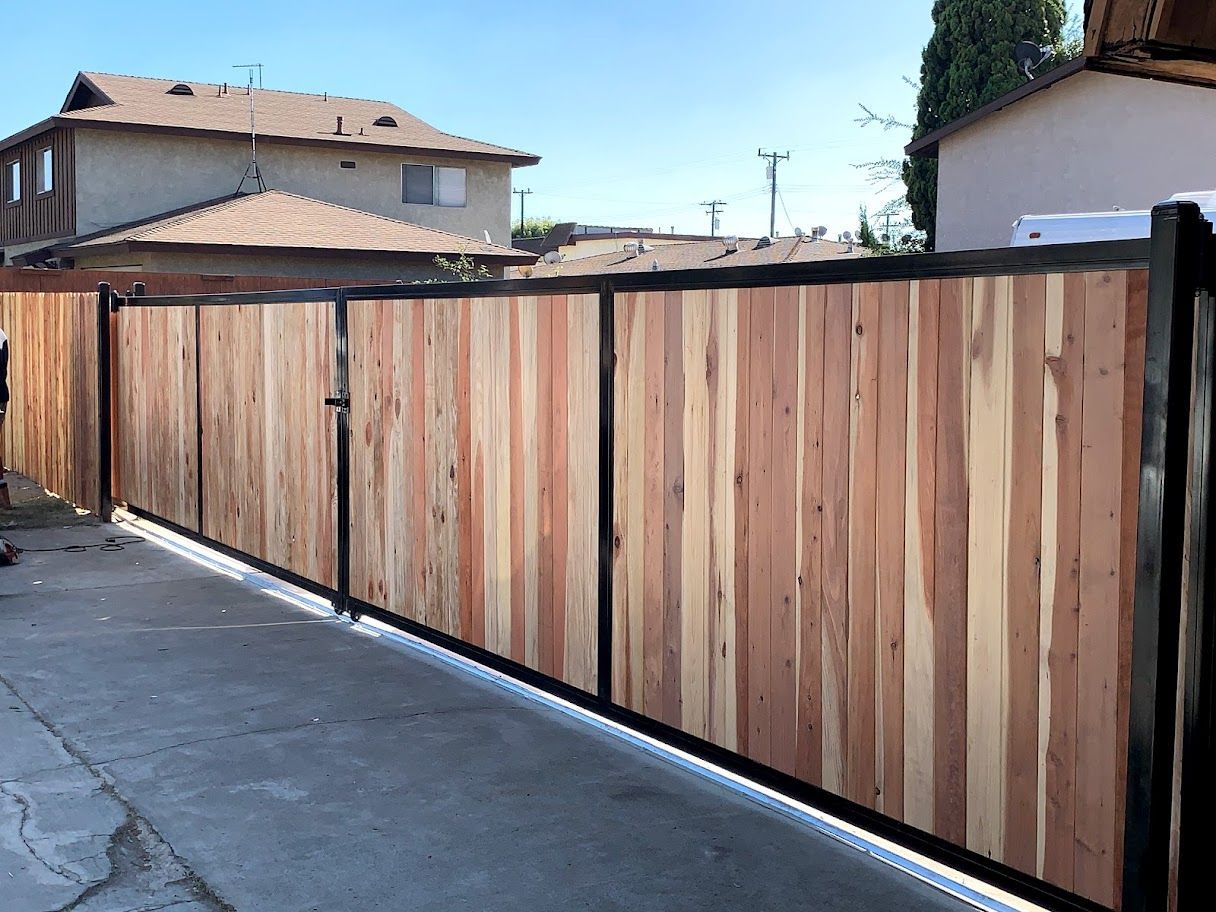All Categories
Featured

When installing a fencing, picking the right material is essential to stabilizing performance, appearances, and budget plan. Timber, plastic, and aluminum are amongst one of the most generally selected secure fencing materials, each with its drawbacks and strengths. This guide discovers the pros and disadvantages of these options to help you make a notified decision.

Wood Fence. Pros:. All-natural Elegance: Wood's classic appeal can enhance any building with its cozy and traditional appearance. Customizable: You can paint, stain, or carve wood to fit your design preferences. Economical: Wood fencing is initially a lot more affordable contrasted to some other products. Eco Friendly: As a renewable energy, timber is naturally degradable and often thought about environmentally friendly. Cons:. Maintenance-Intensive: Routine sealing, painting, or staining is required to protect against damages from weather condition and bugs. Prone to Degeneration: Without appropriate care, wood can rot, warp, or crack over time. Much shorter Life expectancy: On average, wood fencings last 10-15 years, depending upon the kind of wood and upkeep. Wood is a wonderful option for those who value aesthetic appeals and agree to purchase normal maintenance to preserve its look and resilience.
Plastic Fence. Pros:. Low Maintenance: Vinyl needs minimal care-- just periodic cleansing with soap and water. Weather Resistant: It does not warp, rot, or yield to insect damages, making it extremely resilient in different environments. Longevity: Vinyl fencings can last 20-30 years with little to no repair work. Design Selection: Available in a large range of styles, textures, and colors, consisting of wood-like looks. Disadvantages:. Greater Initial Price: Plastic fences are much more costly upfront compared to timber. Susceptability to Cold: In incredibly winter, vinyl can end up being vulnerable and fragile to splitting. Restricted Repair Options: Matching replacement panels can be challenging if damages happens. Vinyl fence is ideal for property owners trying to find a resilient, low-maintenance option that offers modern-day convenience.

Aluminum Secure Fencing. Pros:. Rust-Proof: Light weight aluminum withstands deterioration, making it an excellent choice for moist or wet environments. Sturdy: In spite of being lightweight, aluminum is solid and can endure harsh weather. Low Maintenance: It needs minimal upkeep, usually just occasional cleaning. Long Life-span: Light weight aluminum fences can last decades without considerable degeneration. Classy Design: Commonly used for decorative purposes, aluminum fence adds a sleek, innovative want to buildings. Disadvantages:. High Preliminary Investment: Light weight aluminum fencings are amongst the pricier options on the market. Much less Personal privacy: The open layouts typical with aluminum secure fencing don't give much privacy. Susceptible to Damages: While durable, light weight aluminum can dent if hit with sufficient pressure. Light weight aluminum is an outstanding option for property owners focusing on aesthetics and toughness without requiring much upkeep.
Making Your Decision. When choosing between timber, light weight aluminum, or plastic fence, consider your priorities:
Wood suits those who value an all-natural appearance and don't mind placing in maintenance initiative. Vinyl is the very best choice for those looking for a low-maintenance, weather-resistant service. Light weight aluminum provides smooth style and long-lasting toughness however might do not have personal privacy. By carefully assessing these materials' features, you can pick a fencing that enhances your property while meeting your visual and useful demands.
Latest Posts
Need a Service Center Near You? Choose Car-X St. Louis for Expert Care
Published May 13, 25
1 min read
Savor Year-Round Charm at Deauville Inn: From Beachside Bashes to Chilly Season Gatherings
Published May 13, 25
2 min read
Important Fencing Maintenance Tips for Long Life
Published May 12, 25
1 min read
More
Latest Posts
Need a Service Center Near You? Choose Car-X St. Louis for Expert Care
Published May 13, 25
1 min read
Savor Year-Round Charm at Deauville Inn: From Beachside Bashes to Chilly Season Gatherings
Published May 13, 25
2 min read
Important Fencing Maintenance Tips for Long Life
Published May 12, 25
1 min read